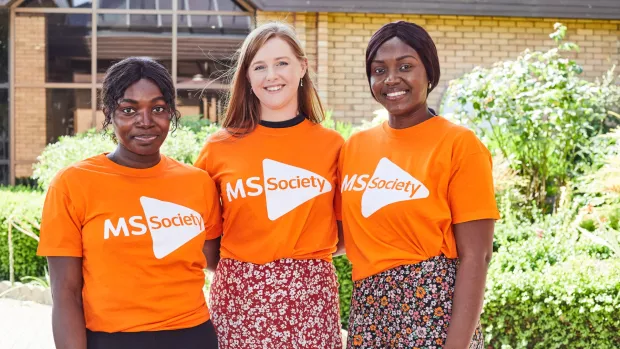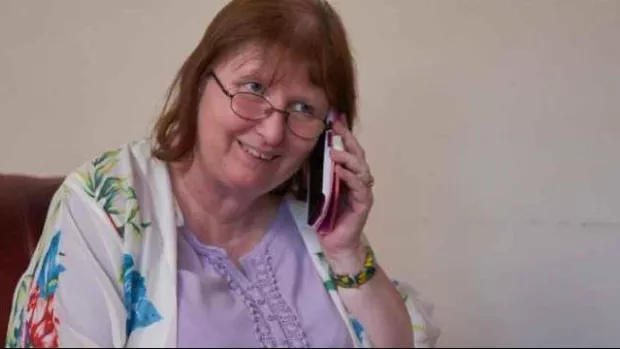
MS Helpline: our confidentiality policy
The MS Helpline team believe in creating a safe space for you to seek information and share your feelings, without the fear of this information being shared outside of our service.
This is why the information you share with us, whether in writing or by phone, is kept confidential wherever possible (please see below for the exceptions to this policy).
Confidentiality offered is between yourself and the service. By ‘service’, we mean the MS Society. This is because we will sometimes pass details onto colleagues within the MS Society, if, for example, your enquiry relates to the work of another team.
Find out more
What does confidentiality mean in practice?
- We won't share the information you provide to us with other people outside of our service - unless you're using our specialist services. These include our moving more with MS service, benefits service, and legal service. For these services you may be asked to participate in some service evaluation. Our specialist practitioners will explain what this will involve in practice and how your data will be used. Our benefits and legal service are part of our partnership service with the Disability Law Service (DLS), and you'll be informed that you're being transferred to the Disability Law Service when your call is transferred.
- The DLS work in line with the Data Protection Act 2018 and the General Data Protection Regulation (GDPR). You can read more about their privacy policy on the DLS website.
- Your number will not be displayed when you call us.
- If we call you, an anonymous number will display. This cannot be used to call us back. However, if the physical activity specialist and legal service contact you, their number will be displayed.
- The MS Helpline number will not appear on bills for landlines and most major mobile networks.
- Electronic information we hold about you will be stored securely on our database and password protected files. Information on paper will be kept in a locked drawer.
- We will not routinely ask for personal details, including your name, unless we need this information, for example, to contact you by post.
- We will not take third party requests. We will not contact you by phone or send you information without first having direct contact from you.
- General information will be collected for monitoring purposes. This is so we can understand the needs of our service users, report on this, and make improvements to our service.
- We may ask if you would like to be contacted in future to provide feedback about our service. We will always seek your permission to do this.
- Sometimes calls may be monitored for quality control and training.
- We work in line with the Data Protection Act.
What can you do?
- You can read this policy online, or ask for a hard copy.
- You can choose what information you feel comfortable sharing with us.
Breaking confidentiality - exceptions to our policy
There are some exceptional circumstances where we may break confidentiality, usually due to a legal obligation, or to ensure your safety, or the safety of others.
These are:
- In the event that terrorism, money laundering or bomb threats are disclosed.
- If we receive a statute or court order requesting that we share information.
- Where there is risk of abuse to an adult at risk or a child.
- Where there is a serious risk to the safety of others.
- In the event that staff and volunteers are threatened or abused.
- In the event that the service is abused, preventing others from accessing the support they need.
- In the event that someone is taking steps to end their life and we feel sure they do not have the mental capacity to make that decision.
Suicide and self-harm
We are all trained on the MS Helpline to handle enquiries from people self-harming or expressing suicidal ideation or intention. We will not judge or try to dissuade these actions, but neither will we condone or allow ourselves to be complicit with these actions.
If you contact us to talk about self-harm or suicide, we will be able to offer you support and we will only contact the emergency services if we believe you do not have mental capacity or if there are other reasons listed above in the exceptions to our confidentiality policy.



